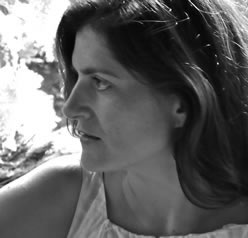|
In the children's book Frederick, written and illustrated by Dutch artist Leo Lionni, Frederick the mouse sits daydreaming while all the other mice busily prepare for winter in a stone wall at the edge of a country farm. These hardworking mice chastise Frederick for making them do all the chores and it's true, he seemingly lazes as they collect their nuts and fluff their nests. When it snows and the mice retreat, Frederick benefits from their hard work, nesting with them, eating with them. But late in the winter when the supplies run out and the mice are desperately awaiting signs of spring, Frederick emerges from his half-lidded laze and begins poetically reminding the other mice of the joys of spring and summer. The mice are warmed and sustained by his words and finally they appreciate the need for a contemplative in their society.
It's difficult to know if you're wasting your time. Is your imagination, your point of view, your observation of the world and of what it means to be human, really something worth suspending ordinary life? Do you deserve Frederick's reflective role in society? Are you really a writer? Or are your inky scratches merely indulgent self-gratification?
Worrying about this kind of thing is a terrific method for crippling your creativity. So the good news is, you can forget about it. The only way to find out if you are a writer is to start writing. How many times have we heard it before: Anyone who says he or she is a writer and yet can't find the time to write, is not really a writer. You can stare at the sky and nap and watch TV (for research of course) and act out the role of a loafer to your heart's content as long as you carve out a little time, maybe an hour or two every day, to put words on a page. Then you're golden.
But even those few hours are hard work. Frederick worked hard, observing the subtleties of the summer sky, finding the words to describe a warm breeze or the joy of a field of poppies, arranging his thoughts, preparing his words for his fellow mice. He did it all day long, every day, and this discipline was the ground of his perfection.
Discipline. Does the word scare you? It's not profound. It's not exotic. It's not something you're born with. You are not anointed with it by a muse or a deity. It doesn't require unbridled passion or intelligence. You can't get it in a bottle or a pill. It's a simple thing that works like digging a hole or boiling an egg. If you go through certain motions, you will get a result. Sink a shovel into the ground, lift out some dirt, repeat, and you will have a hole. Put an egg in some water in a pot, put it over a flame, wait five minutes and you'll get a nice boiled egg.
And yet. Why is discipline so elusive and painful? Why is it so difficult to just do it?
Maybe because in the end, while there is so much to gain, there is also something to lose. Maybe we fear our own creativity because it might isolate us, elevate us, free us from our mundane "selves." And in that sense annihilate us. As Vincent Van Gogh said, "I put my heart and my soul into my work, and have lost my mind in the process."
But why be hobbled by this kind of lofty thinking? If I can return to Frederick's mindset, and be mousy and consistent in my pursuits, at the end of the season, I will have something to show for it. Then, if all the conditions are ripe, there will be a hungry audience—or at least a few peckish rats who might accept a snack—and hopefully they will be somehow sustained by my offering.
|


